
New data suggest venetoclax may offset the negative prognostic impact of short telomeres in patients with chronic lymphocytic leukemia (CLL).

New data suggest venetoclax may offset the negative prognostic impact of short telomeres in patients with chronic lymphocytic leukemia (CLL).
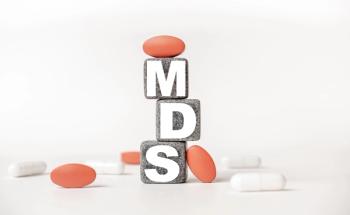
Two abstracts presented at the 2024 American Society of Hematology Annual Meeting & Exhibition provided insight into MDS response to hypomethylating agents (HMAs).
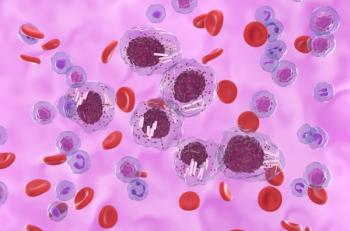
One study found most—but not all—patients with chronic lymphocytic leukemia disease progression while taking a Bruton tyrosine kinase inhibitor (BTKi) had a key mutation linked to resistance.

Quality-of-life (QOL) outcomes vary widely for patients receiving first-line treatment for chronic lymphocytic leukemia (CLL), according to research presented at the 2024 American Society of Hematology (ASH) meeting.
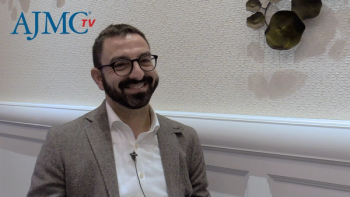
There’s a balance required to manage both the symptoms of myelofibrosis through treatment and the side effects caused by the drugs, explained Firas El Chaer, MD, of the University of Virginia School of Medicine.
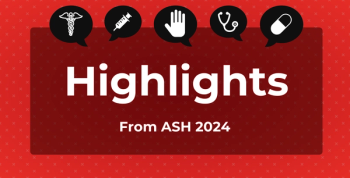
The 66th American Society of Hematology (ASH) Annual Meeting & Exposition took place December 7-10, 2024, in San Diego, California; the 2025 meeting is currently scheduled to take place in Orlando, Florida, December 6-9.

In addition to new treatments over the past few years changing the landscape for patients, additional treatments being evaluated are looking at new mechanisms of action, said Firas El Chaer, MD, of University of Virginia School of Medicine.

The high health care burden faced by individuals with hemophilia underscores the urgent need for innovative treatments and improved diversity in clinical trials.

A pair of studies from The American Society of Hematology (ASH) Annual Meeting & Exposition provides insights into the prognostic utility of geriatric assessment tools and their role in tailoring therapy to improve patient outcomes.

Three abstracts presented at the 2024 American Society of Hematology annual meeting focused on patient preferences and treatment choices in blood cancers.

Epcoritamab-bysp showed a 69% objective response rate and 62% complete response rate in older patients with large B-cell lymphoma who were ineligible for anthracycline-based therapy.
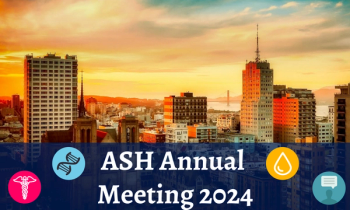
Experts discussed the great advances and innovations they’ve seen this year in acute myeloid leukemia (AML) and multiple myeloma.

Haydar Frangoul, MD, MS, medical director, Pediatric Hematology/Oncology for Sarah Cannon Research Institute at TriStar Centennial Children’s Hospital, Nashville, presented the data on the long-term efficacy and safety for participants with sickle cell disease (SCD) who received exa-cel.

The American Society of Hematology is launching a health equity effort, "Treating Fairly," which was discussed at the quality symposium at the 66th Annual Meeting & Exposition.
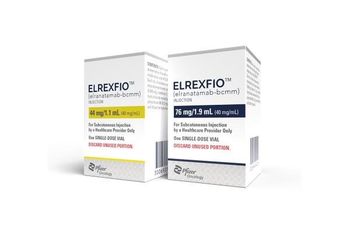
Results of a small study presented at the 66th American Society of Hematology Annual Meeting & Exposition suggest combining the bispecific elranatamab with the proteasome inhibitor carfilzomib can bring responses even in patients with stage III disease.

A pair of studies presented at the 2024 American Society of Hematology (ASH) Annual Meeting & Exposition highlight continuing gaps in hemophilia care despite the availability of prophylactic therapies.

Innovations in rare blood disorders took center stage at the 2024 American Society of Hematology (ASH) Annual Meeting & Exposition, with key research presented on immune thrombocytopenia, hemophilia, and multiple myeloma.

Yi Lin, MD, PhD, hematologist and oncologist, Mayo Clinic, discusses the efficacy of ciltacabtagene autoleucel (cilta-cel) chimeric antigen receptor T-cell therapy vs standard treatments for patients with multiple myeloma.
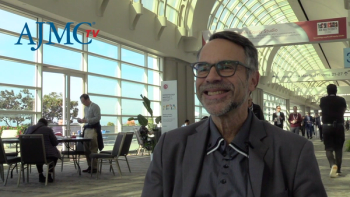
Bispecific antibodies show strong initial uptake in community settings for multiple myeloma treatment, particularly among Black patients compared with clinical trials.
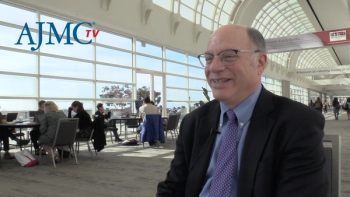
By reducing cytokine release syndrome and neurotoxicity, prophylactic tocilizumab could facilitate safe outpatient administration of bispecifics to treat multiple myeloma (MM), explained Robert Rifkin, MD.
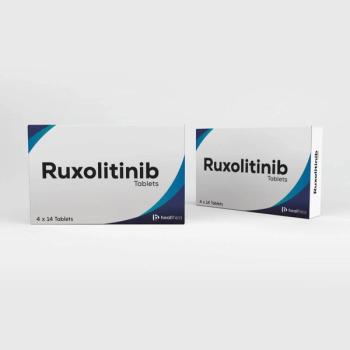
Two posters presented at the 2024 American Society of Hematology meeting bolster evidence supporting the long-term clinical benefits of ruxolitinib for polycythemia vera and chronic graft-vs-host disease.
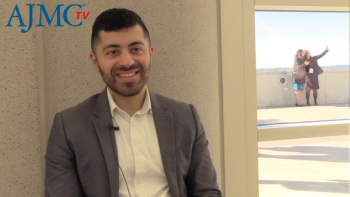
A shorter duration of venetoclax treatment for newly diagnosed acute myeloid leukemia (AML) may enhance efficacy and reduce toxicity, according to Amir Ali, PharmD, BCOP.

The study is the first to evaluate a fixed-duration regimen of venetoclax, the first-generation BCL2 inhibitor, with a second-generation Bruton tyrosine kinase inhibitor, acalabrutinib, in chronic lymphocytic leukemia (CLL).
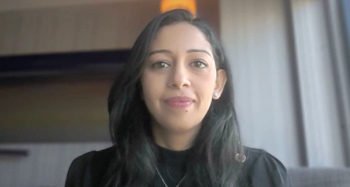
Mansi Shah, MD, assistant professor, Rutgers Cancer Institute of New Jersey, shares long-term follow-up data on the efficacy and safety of linvoseltamab in patients with heavily pretreated, relapsed/refractory (R/R) multiple myeloma.
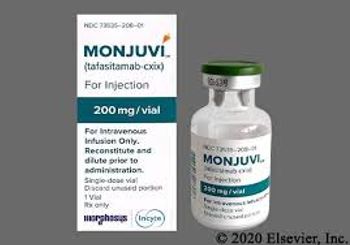
The inMIND trial was the first to examine dual targeting of CD19 and CD20 in follicular lymphoma.

This pair of posters presented at the 66th American Society of Hematology Annual Meeting & Exposition provides updates on epcoritamab, currently being investigated in the Epcore NHL-1 trial.
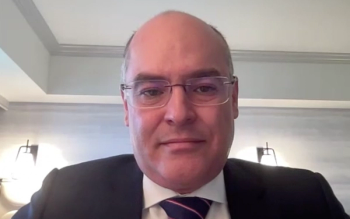
Alvaro Alencar, MD, associate professor of clinical medicine, chief medical officer, University of Miami Sylvester Comprehensive Cancer Center, examines disparities in lymphoma outcomes using retrospective data from cooperative groups over 15 years.

Single-agent, subcutaneous epcoritamab generated deep responses in patients with relapsed/refractory chronic lymphocytic leukemia (R/R CLL).

The phase 3 AQUILA study showed a 63.1% progression-free rate at 5 years with daratumumab versus 40.8% with active monitoring.

Social determinants of health have a more pronounced effect on mortality among patients with acute myeloid leukemia (AML) who did not receive transplant vs those who did.

259 Prospect Plains Rd, Bldg H
Cranbury, NJ 08512
© 2025 MJH Life Sciences®
All rights reserved.
